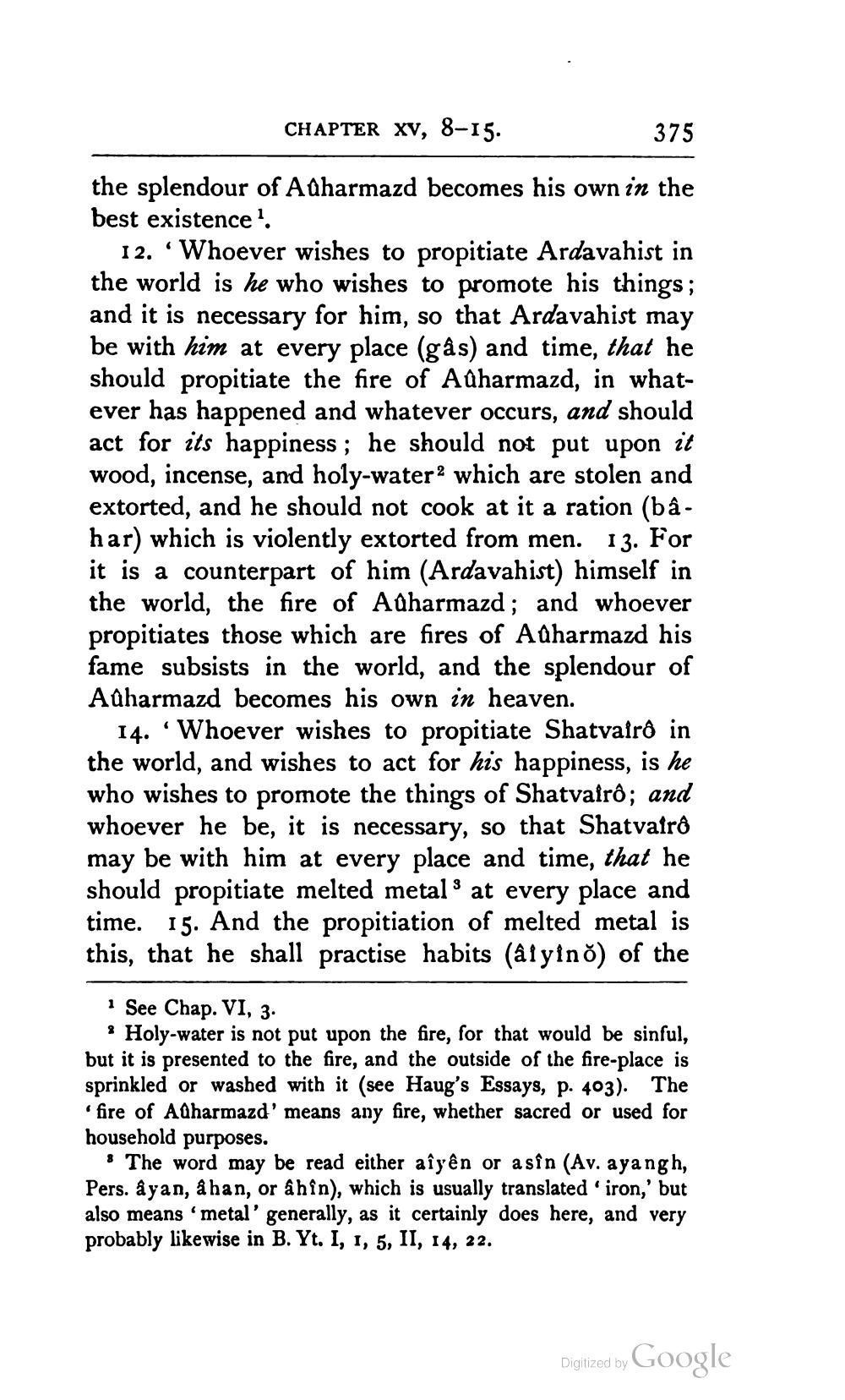________________
CHAPTER XV, 8-15.
375 the splendour of Adharmazd becomes his own in the best existence?
12. Whoever wishes to propitiate Ardavahist in the world is he who wishes to promote his things; and it is necessary for him, so that Ardavahist may be with him at every place (gas) and time, that he should propitiate the fire of Adharmazd, in whatever has happened and whatever occurs, and should act for its happiness; he should not put upon it wood, incense, and holy-water? which are stolen and extorted, and he should not cook at it a ration (bâhar) which is violently extorted from men. 13. For it is a counterpart of him (Ardavahist) himself in the world, the fire of Adharmazd; and whoever propitiates those which are fires of Adharmazd his fame subsists in the world, and the splendour of Allharmazd becomes his own in heaven.
14. “Whoever wishes to propitiate Shatvairô in the world, and wishes to act for his happiness, is he who wishes to promote the things of Shatvairô; and whoever he be, it is necessary, so that Shatvairð may be with him at every place and time, that he should propitiate melted metals at every place and time. 15. And the propitiation of melted metal is this, that he shall practise habits (diyino) of the
See Chap. VI, 3. * Holy-water is not put upon the fire, for that would be sinful, but it is presented to the fire, and the outside of the fire-place is sprinkled or washed with it (see Haug's Essays, p. 403). The
fire of Adharmazd' means any fire, whether sacred or used for household purposes.
8 The word may be read either aîyên or asîn (Av. aya ngh, Pers. & yan, å han, or âhîn), which is usually translated iron,' but also means 'metal' generally, as it certainly does here, and very probably likewise in B. Yt. I, 1, 5, II, 14, 22.
Digitized by Google




